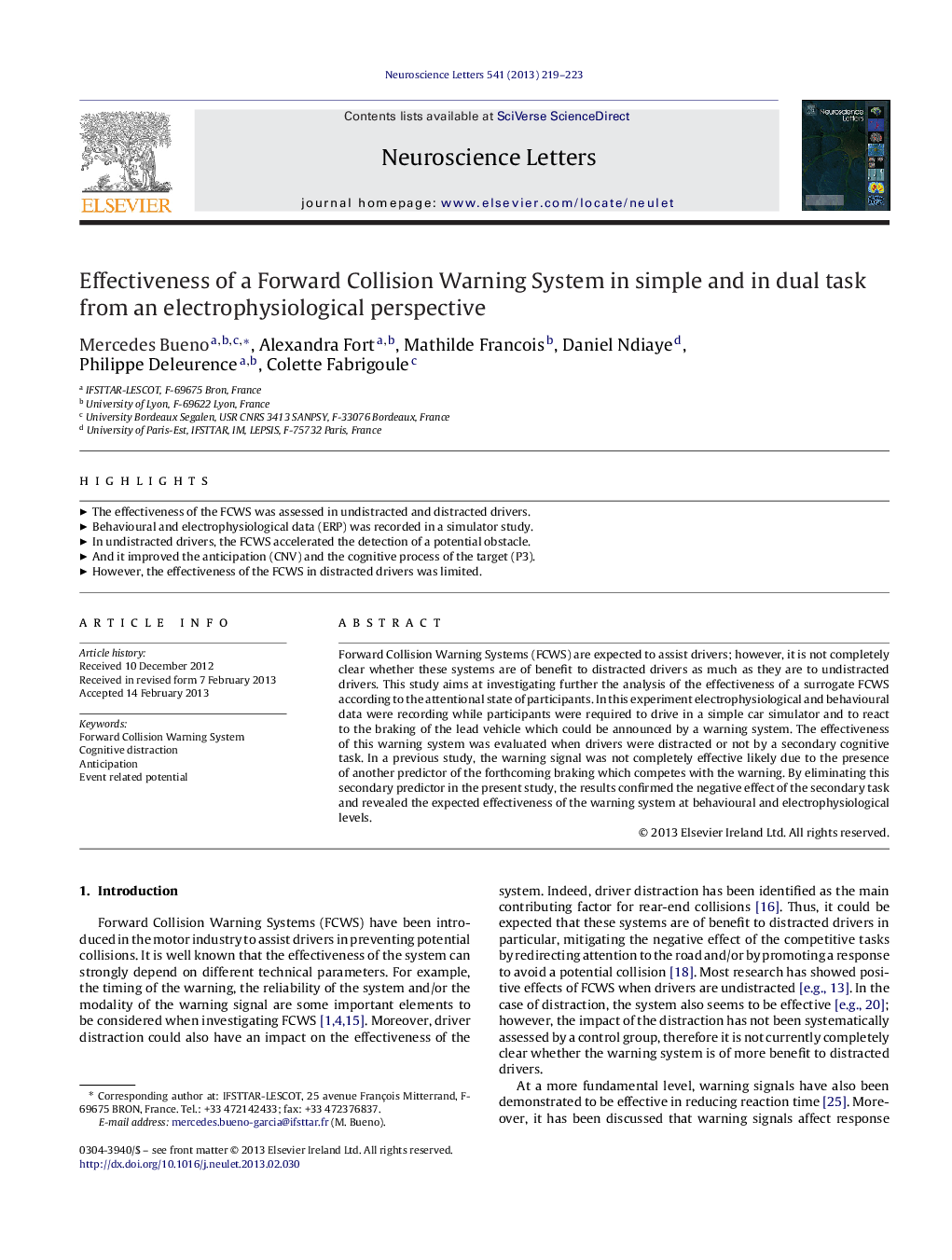| Article ID | Journal | Published Year | Pages | File Type |
|---|---|---|---|---|
| 6283145 | Neuroscience Letters | 2013 | 5 Pages |
Forward Collision Warning Systems (FCWS) are expected to assist drivers; however, it is not completely clear whether these systems are of benefit to distracted drivers as much as they are to undistracted drivers. This study aims at investigating further the analysis of the effectiveness of a surrogate FCWS according to the attentional state of participants. In this experiment electrophysiological and behavioural data were recording while participants were required to drive in a simple car simulator and to react to the braking of the lead vehicle which could be announced by a warning system. The effectiveness of this warning system was evaluated when drivers were distracted or not by a secondary cognitive task. In a previous study, the warning signal was not completely effective likely due to the presence of another predictor of the forthcoming braking which competes with the warning. By eliminating this secondary predictor in the present study, the results confirmed the negative effect of the secondary task and revealed the expected effectiveness of the warning system at behavioural and electrophysiological levels.
⺠The effectiveness of the FCWS was assessed in undistracted and distracted drivers. ⺠Behavioural and electrophysiological data (ERP) was recorded in a simulator study. ⺠In undistracted drivers, the FCWS accelerated the detection of a potential obstacle. ⺠And it improved the anticipation (CNV) and the cognitive process of the target (P3). ⺠However, the effectiveness of the FCWS in distracted drivers was limited.
